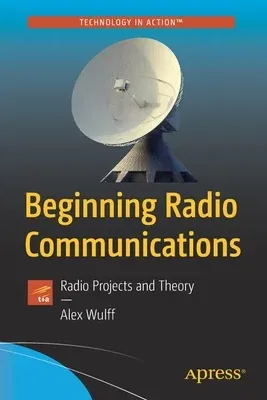Understanding radio communications systems unlocks a new way to look at
the world and the radio waves that connect it. Through
easy-to-understand instruction and a variety of hands-on projects, this
book gives the reader an intuitive understanding of how radio waves
propagate, how information is encoded in radio waves, and how radio
communications networks are constructed.
This book also focuses on the world of amateur, or "ham," radio, a
global network of hobbyists that experiment and communicate with radio
waves. The reader can learn what amateur radio is, how one can obtain an
amateur radio license, and how various pieces of amateur radio hardware
work.
Rather than overwhelm with formulas and numerical approaches, this book
presents an easy-to-follow qualitative approach to the theory aspects of
radio--perfect for those with little to no knowledge of
electromagnetism, signal processing, or hardware development. Instead,
instruction focuses on hands-on learning. Radio waves are easy and
inexpensive to manipulate with modern hardware, so the examples
throughout this text provide ample opportunity to develop an
understanding of such hardware.
A special focus is given to applications of radio communications in the
modern world. In every chapter, the reader gains new insight into
different radio communications systems and the hardware and software
that makes it all possible. Projects include using a software-defined
radio to download live images of the Earth from weather satellites,
Arduino-based digital radio communications networks, making amateur
radio contacts, and more.
What You'll Learn:
-
- Encode information in radio waves
- Obtain an amateur radio license
- Use important pieces of radio communications hardware, such as
antennas, handheld transceivers, software-defined radios, radio
repeaters, and more
**Who This Book Is For
**Anyone interested in modern communications, from high school and
college students pursuining STEM to professionals looking to broaden
their understandings of radio


